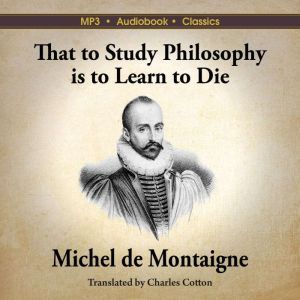Synopsis
We all die, sooner or later. We all know it, and we wonder when, where, and how it may happen. and yet we go to extraordinary lengths to put the thought of it out of our minds. We hesitate to bring it up in conversations. Montaigne, who … essay, addressed this issue head on in “To Study Philosophy is to Learn to Die.” It is perhaps his best-known essay, a kind of summation of his philosophy, and considered his most stoic. There are three main themes: first, do not forget that we all die, including you; second, there’s no reason to be afraid or to worry; third, be ready when the time comes, as it inevitably will. Keeping death in mind, he argues, diminishes the shock when it happens to others and alleviates the suffering by putting things in perspective. Acceptance and understanding should, in turn, help us remember that death is a part of the natural order, and that it happens only once, after which there is nothing to worry about simply because there is nothing after the end of it all. These all help us to be prepared and to appreciate the present even more, releasing us from the enslavement of fear and anxiety. Carpe diem!
The essay contains numerous quotes in Latin from the ancients that reinforce his ideas. These are followed by an English translation and citation of the source in the original.

